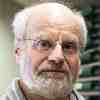Communications of the ACM
Refine your search:
From BLOG@CACM
Where to Look: CS Ethics Research
A select range of publications, peer-reviewed or close, provide sources for student research.
From BLOG@CACM
Four Conversations About Human-Centric AI
I discuss the different conversations, their limits, and what we really need to be talking about.
From BLOG@CACM
New Research Vindicates Fodor and Pylyshyn: No Explainable AI Without 'Structured Semantics'
In this short article, we generalize recent research results that clearly make the point that "there can be no explanation without semantics."
From BLOG@CACM
Heinz Rutishauser, a Forgotten Swiss Pioneer
A look at the little-known Rutishauser, who created "automatic programming" and was one of the "authoritative fathers" of the Algol programming language.
From BLOG@CACM
Lessons Learned Writing For BLOG@CACM
...and how to become a better technical writer In the process.
From BLOG@CACM
Opportunities of Data Science Education
Considering the six new and exciting opportunities that data science presents.
From BLOG@CACM
Which Were the Most Influential Early Computers?
Considering early machines that had the greatest influence on the development of program-controlled computers.
From BLOG@CACM
DevSecOps: Resolving Disagreements Between Developers and Security Teams
Conflicts and disputes can arise between these adjacent teams; it is impossible to avoid them in the process of launching new products. And they certainly require...
From BLOG@CACM
A Challenge of Membership
How can we solve ACM membership fee payment problems for Russians and Belarussians?
From BLOG@CACM
The Continual Re-Creation Of The Key-Value Datastore
The evolution of single machine key-value stores.
From BLOG@CACM
A History of One Brute-Force Attack
A classic brute-force attack boils down to guessing credentials. In my scenario, though, the perpetrators acted somewhat differently.
From BLOG@CACM
Mitigating the Base-Rate Neglect Cognitive Bias in Data Science Education
How can machine learning educators help learners cope with the base rate neglect cognitive bias?
From BLOG@CACM
Was Ada Lovelace Actually the First Programmer?
Historical arguments for and against.
From BLOG@CACM
On the Ethics of Writing With AIs
AI-generated text, even if accepted from an ethical standpoint, raises questions about the provenance of the generated text.
From BLOG@CACM
Communing on Computing
Conferences can renew our professional commitment and inspire thought on problems we face.
From BLOG@CACM
The Base-Rate Neglect Cognitive Bias in Data Science
Using Bayes' Theorem, the correct answer to both the medical diagnosis problem and to the lion classification question, can be calculated.
From BLOG@CACM
Why Are There So Many Programming Languages?
Most languages differ less in what they make possible, and more in terms of what they make easy.
From BLOG@CACM














